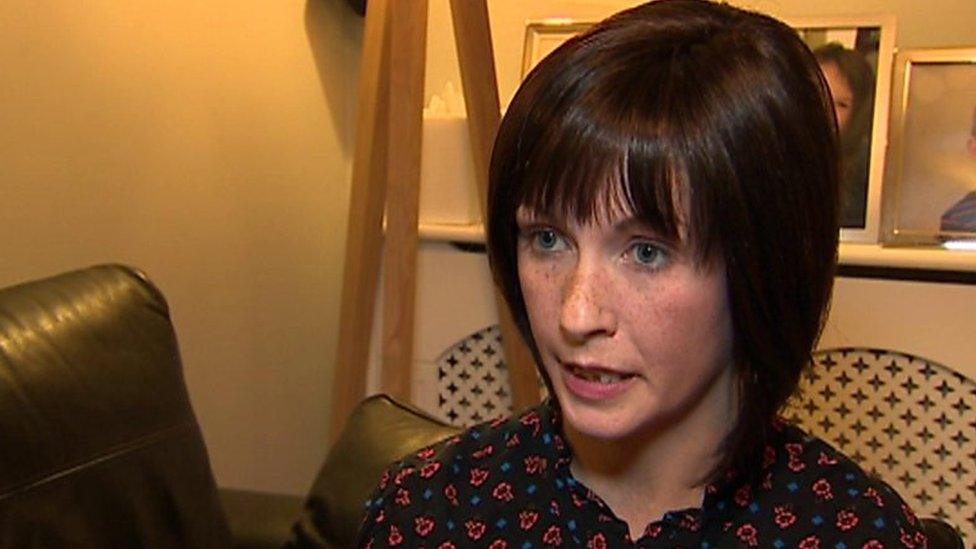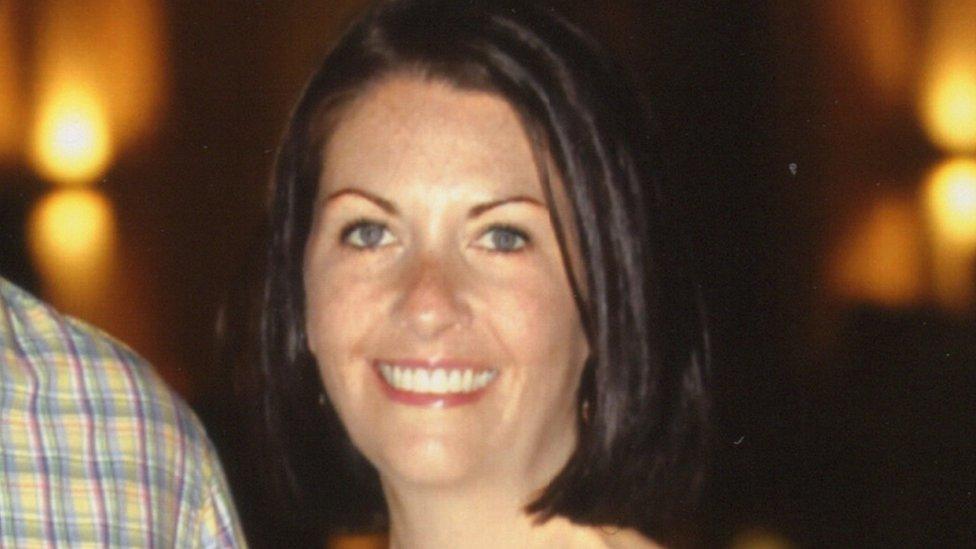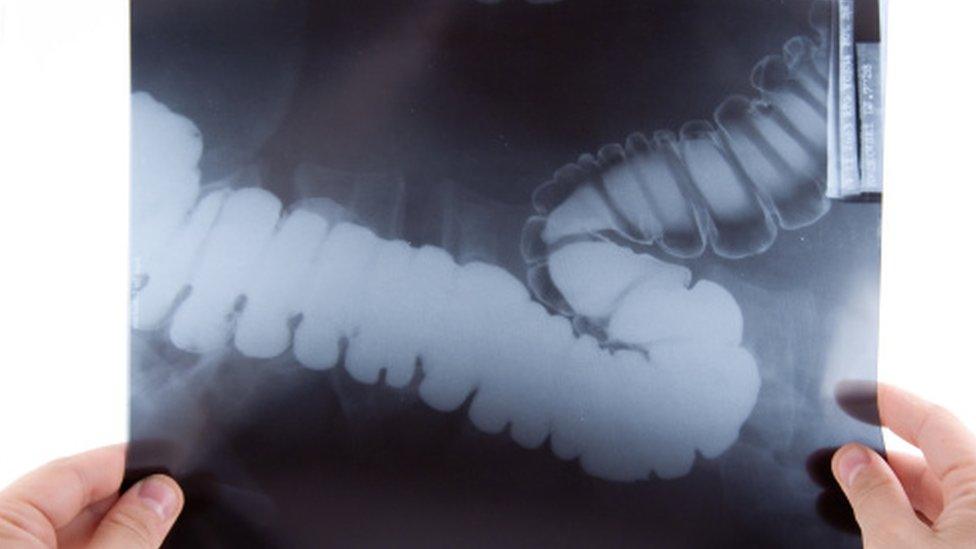Patients 'not tested' for bowel cancer gene in Wales
- Published
- comments

Tracy Smith with her granddaughter Lola: 'She's another reason for fighting'
Bowel cancer patients in Wales are not being tested for a genetic condition at diagnosis contrary to official guidelines, a charity has said.
Sufferers of Lynch syndrome have an up to 80% risk of developing bowel cancer as well as other types of cancer.
It can alter treatment options for those affected if they know and alert close family members who may also be affected, Bowel Cancer UK has said.
The Welsh Government said testing was available for those most at risk.
Tracy Smith, who lives in Caerphilly, was 33 when she was diagnosed with bowel cancer when her youngest child was two years old.
Because of her young age, her consultant wanted her have genetic testing.
She said: "It's a bit of a shock when you're 33 and you're diagnosed with cancer. I didn't have any symptoms at all apart from tiredness and being a busy working mum you're bound to be tired."
'Travesty'
She was diagnosed with Lynch syndrome and it became apparent that the genes causing it were widespread in her family.
"My dad's one of four; they've all got the gene. I'm one of three, we've all got the gene," she said.
Her younger sister went on to develop cancer and lost her fight with the illness aged just 23. A cousin died of bowel cancer aged 20.
Of her three children, one has the gene, one does not, and the youngest, aged 16, wants to find out if he does or not.
Ms Smith said: "It's a travesty when people are dying young because they don't have access to genetic testing."
Bowel Cancer UK said a Freedom of Information request had revealed no health board in Wales tested all bowel cancer patients at the time of diagnosis, which is part of the health watchdog NICE's guidelines.

Only Abertawe Bro Morgannwg health board and Cwn Taf health board test bowel cancer patients aged under 50.
Cwm Taf and Betsi Cadwaladr health board are the only two to test bowel cancer patients who have a strong family history of Lynch syndrome.
The charity said it costs £200 to test patients for the syndrome, around 1% of the average cost of treating a patient for bowel cancer, at £25,000.

Lynch syndrome
Lynch syndrome (LS) is also known as hereditary non-polyposis colorectal cancer (HNPCC)
It is caused by an alteration in a gene called a mismatch repair gene
LS does not cause any symptoms
LS increases the lifetime risk of bowel cancer by up to 80%, and also of developing many other cancers including ovarian, stomach and womb
If a family has a history of developing these cancers when members are under 50 years old, it is possible they have the altered gene that causes LS
Knowing about the risk and having regular screening may help prevent some cancers. It may also help other cancers be found in the early stages, when they are more likely to be curable
People with LS are screened every two years - some people with LS even remove part of their bowels or wombs to pre-empt potential cancers

It said children, parents and siblings of those with the condition have a 50% chance of having it, and early knowledge can help people take steps to reduce their risk of the cancer or help detect it early, when it is less costly to treat.
People with the syndrome are much more likely to develop bowel cancer at a younger age, with an average age at diagnosis of 45, and to suffer a recurrence.
Lowri Griffiths, Bowel Cancer UK's boss in Wales, said: "Wales is failing to systematically test bowel cancer patients for this devastating condition.
"A lack of funding and high level strategic accountability from NHS Wales and local health boards means that the hands of our clinicians are tied and so are unable to carry out this life-saving test."
A Welsh Government spokesman said: "Currently, testing is available for patients at the highest risk of Lynch syndrome and we are working with experts from the Wales Cancer Network, external to develop proposals to widen access."
- Published6 February 2018

- Published6 February 2018

- Published31 December 2017
